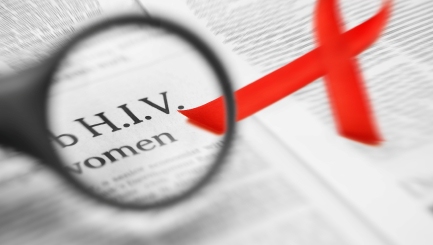Understanding the Risks of Contracting HIV
 HIV, the human immunodeficiency virus, is a dangerous condition that attacks the body’s immune system, leaving infected people vulnerable to disease and infection. When HIV progresses to its later stages and becomes AIDS, the immune system can no longer fight off life-threatening conditions.
HIV, the human immunodeficiency virus, is a dangerous condition that attacks the body’s immune system, leaving infected people vulnerable to disease and infection. When HIV progresses to its later stages and becomes AIDS, the immune system can no longer fight off life-threatening conditions.
HIV infection is relatively rare – there are around 96,000 people living with HIV in the UK with around 6,200 new cases annually. However, there is no cure for this infection and so a diagnosis of HIV means life-long treatment.
The virus is passed on through bodily fluids, such as blood or semen – most infections are through unprotected sex, while drug addicts sharing needles are also at risk. Pregnant women can pass the virus on to their unborn baby and breastfeeding mothers risk infecting their baby if they are HIV positive.
Just under half of all new cases are linked to heterosexual sex with the same percentage caused by sex between men. A leading sexual health charity, the Terrence Higgins Trust, has identified gay men and those from black African communities as the two groups most at risk of contracting HIV in the UK.
However, HIV can affect anyone and having unprotected sex or sharing needles will increase your risk of infection. If you have been in a situation where you might have been exposed to HIV, you should get tested as soon as possible – early stage diagnosis allows treatment to start quickly, giving you a greater chance of remaining healthy and of a normal life expectancy
A blood test for HIV can be carried out at sexual health or genitourinary (GUM) clinics, some GP surgeries, community clinics and antenatal clinics for pregnant woman. The Terrence Higgins Trust also runs rapid-testing clinics around the UK – call 0845 12 21 200 for information. The test can take three months to show HIV in the blood so it’s important to get tested regularly if your behaviour puts you in risky situations.
An HIV test taken at your GP surgery will be placed on your medical records. If you’re concerned about confidentiality, go to a GUM or sexual health clinic where your records remain private.
Specialist HIV clinics deal with anyone who tests positive for HIV, providing medical treatment, advice and support to help you deal with your diagnosis. Your treatment has to start immediately to arrest the effect the virus is having on the immune system and involves taking a combination of drugs daily.
A positive HIV test can have a devastating effect on you emotionally and physically. You will be offered counselling services to help you cope and advice on how to discuss your condition with friends, family and any sexual partners who might be affected by your diagnosis.


Comments are closed.